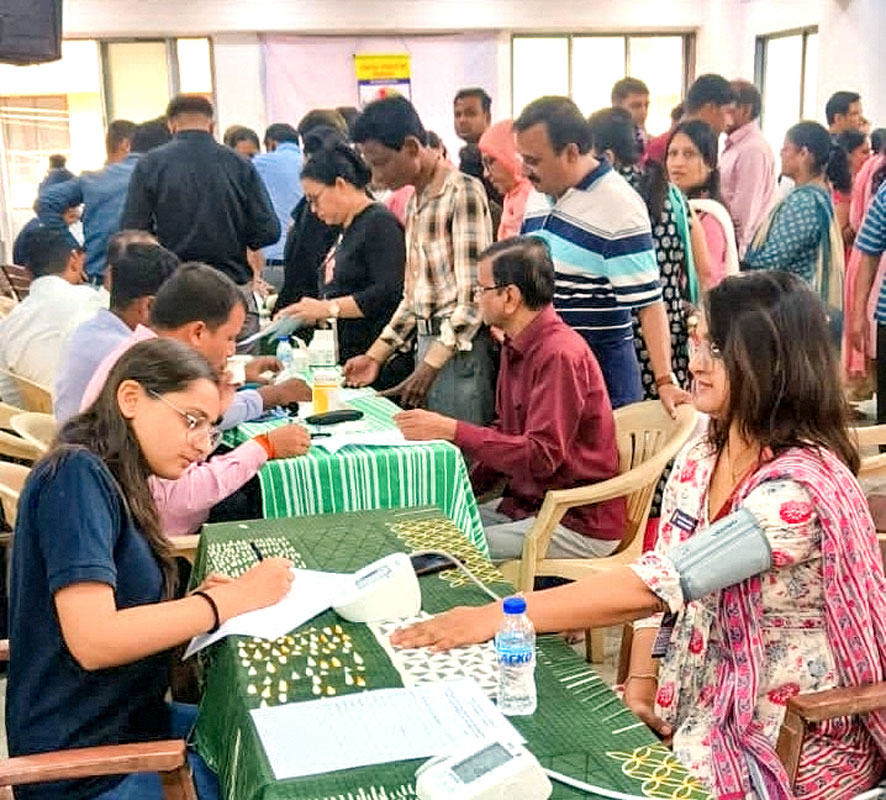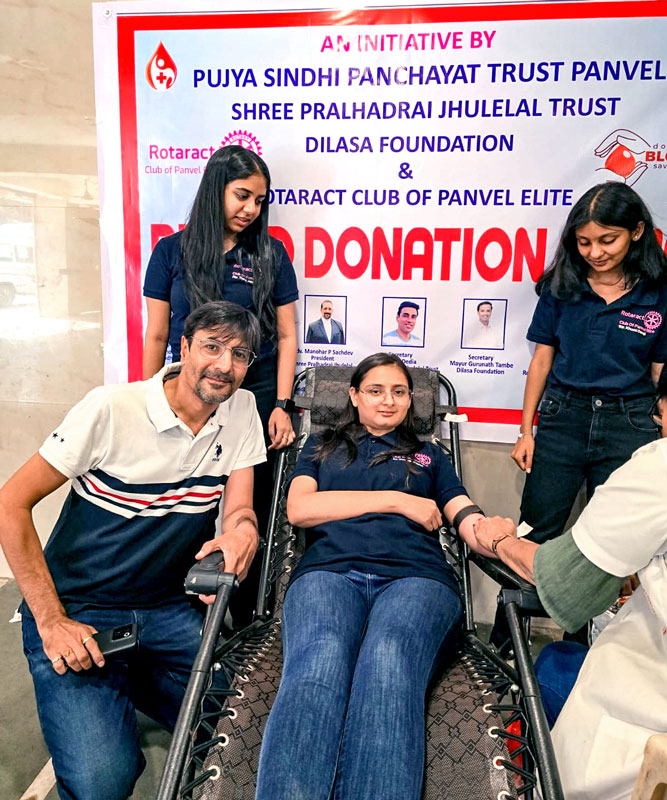Eco-friendly stoves make women happy
All the 10 tribal families at Sindalachiwadi village in Raigad district of Maharashtra are happy that they don’t have to suffer the daily ordeal while preparing meals in their mud huts. With their new biomass, smokeless stoves donated by RAC Panvel Elite, RID 3131, “cooking has become easy and painless for us. Also, the cooking time is reduced by around 40–50 minutes,” says Pallavi (35). Earlier, she recalls, “with mud chullahs we were exposed to excessive smoke, suffered from frequent cough and eye irritation.” Also, the chullah had to be fed with firewood from tree branches, thus it resulted in shrinking green cover in their locality.

Rotaractors led by their club president Samruddhi Munot hosted a one-day Garba dance and music at the Sindhi Panchayat Hall, Panvel, on Navaratri festival to raise funds for their service projects. “We raised around ₹75,000 out of our Garba programme, and used ₹35,000 for the smokeless stove project. We gave a demonstration to each beneficiary at their houses on how to use the stove that does not need either electricity or battery to run it,” explains Samruddhi. First, a couple of coal briquettes are pushed into the side funnel of the stove, and they are lighted. Then small, dry twigs are shoved, which will result in instant flame on top. “We can cook one dish at a time, and any type of vessel of different sizes can be placed on top of the stove,” she says.
We raised around ₹75,000 out of our Garba programme, and used ₹35,000 for the smokeless stove project. We gave a demonstration to each beneficiary at their houses.
— Samruddhi Munot, president, RAC Panvel Elite
Now 45-year-old Kunda has got more spare time to do “other household chores and look after my children better. I am also thinking of taking up a part-time job at home to supplement our monthly income.” Apart from improving the air quality, the biomass device called Panval Rocket Stove (PRS-v5) is eco-friendly and sustainable in the long run, thus being tailormade to suit the convenience of rural housewives.

Chartered in 2019, the Rotaract club is going to take up a mega tree plantation drive in five government schools shortly. “Over 1,000 saplings of diverse varieties will be planted on the school premises; and each tree will be taken care of by a student.” At a recent medical camp held at the Jain Hall, 200 patients were screened by a team of 12 doctors led by Dr Nilesh Banthia, a neurologist, from Neo Clinic and Eco Centre, Panvel. To help thalassaemia patients being treated at the MGM Hospital, the Rotaractors collected over 50 units of blood at a blood donation camp.
Fundraisers
Rotaractors hold fundraisers like Garba dance, Diwali Milan and other fun programmes on festivals to mobilise funds for service projects. “We have an annual club fee of ₹2,300 per head, of which ₹300 goes to district fund, ₹785 to RI dues and the rest is used for projects. We pay a token amount of ₹1,000 per annum to district as multimedia charges,” says Samruddhi.

With a headcount of 26, “our club is being mentored by Ritesh Munot, board member and past president, RC Panvel Elite. He gives us fresh ideas, motivates and guides us on procuring resource material for service projects,” she explains. They also take up online campaign and crowdfunding to mobilise funds. “Recently five stray dogs got afflicted with jaundice. We took up an online campaign, raised funds and treated the canines successfully.”
A final year Law student, Samruddhi says, “my five-year journey in Rotaract is eventful as I learnt many new things in life.” She is doing internship in a private law firm, and “I will become a Rotarian after 3-4 years once I establish myself in my career,” she smiles.
